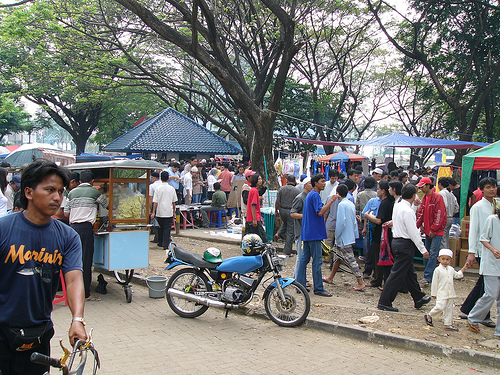It’s difficult to ignore the informal economic sector in Indonesia, with outdoor food vendors lining most city streets. In fact, in 2008 it was recorded that 68% of Indonesian workers were employed in the informal sector - half of which worked as street vendors. Throughout history, authorities forcibly remove vendors in the name of urban order and cleanliness, but in Jakarta, they’ve finally decided to accept them.
Under the democratic government in Indonesia, administration decided to be more flexible with the informal economy, realizing that its an important part of the local business. So instead of playing “hide and seek” with law enforcement as happens in many cities around the globe, vendors (aka pedagang kaki lima) have now been given their own spaces in 2030 Jakarta Spatial Plan. The city government decided to waive their business permits and license fees, only having to pay a small fee for site rental.
By integrating the informal sector into the wider economy, the government is illustrating greater flexibility that benefits the wide networks of those working in the industries, as well as the local economy. While this may not the way forward for all cities, the strategy illustrates just one solution to support and encourage small and low-income business. Additionally, it helps to create vibrant and people friendly streets. With the recent outdoor food market debacle in NYC (Red Hook) , perhaps other cities can take a lesson out of Jakarta’s book.
Image courtesy HappyTellus
Image courtesy Indonesia's Urban Studies

